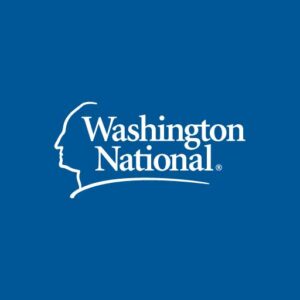
7 reasons to reconsider supplemental health insurance
For most people, supplemental health insurance isn’t at the top of their wish list. And, many people put off buying it because they either don’t understand it, or they mistakenly believe they don’t need it.
However, supplemental health insurance can give your family important protection from the high costs of a health crisis. Therefore, we’re going to share seven reasons why people don’t buy supplemental health insurance—and why they should reconsider with Washington National Active Care® supplemental health insurance!
1. It won’t happen to me.
No one likes to think about the possibility that they could one day face cancer, a heart attack or injury. Many people automatically assume these things only happen to someone older or someone less healthy.
But, the truth is, today’s most common major illnesses and injuries can affect anyone at any time.
Consider the risks:
- 1-in-2 men and 1-in-3 women will be diagnosed with cancer at some point in their lifetime.1
- There are over 1 million heart attacks each year in the U.S.2
- 39 million people receive medical attention for an injury each year.3
- Accidental injuries, cancer and heart disease are the top three causes of death between the ages of 25 and 44.4
An unexpected health event can quickly become a heavy physical and financial burden.
- The average hospital stay costs over $10,700.5
- Hospital bills are the largest out-of-pocket expense for people who filed for medical bankruptcy.6
- 61% of Americans wouldn’t be able to cover an unexpected $1,000 bill from their savings.7
Consider Washington National Active Care as a solution. The policy pays simple, straightforward benefits—directly to you in cash—to help you handle the medical and non-medical costs of common critical illnesses and injuries.
2. I don’t want to think about it.
Most people don’t want to talk or think about issues like cancer or critical illness. Because, these topics are not pleasant for anyone. However, the odds are that you or someone you love will face a major health problem at some point in life.
If the worst happens, would you be able to pay for doctor bills, hospital stays, surgery, short-term care and vital treatments like radiation and chemotherapy? Even if you have major medical insurance, could you afford to pay your co-insurance, copays and deductibles? If an illness or injury kept you from working, how you would make up for the lost income?
Washington National Active Care can help answer these questions. The policy pays a lump-sum benefit—up to $100,000—the first time you are diagnosed with cancer, heart attack/stroke and a list of other critical conditions. The benefit amount is paid in cash to you. Washington National issues the check promptly once we receive acceptable proof of your diagnosis. You are then free to use the money as you need it throughout your treatment and recovery.
3. It sounds too good to be true.
Some people say supplemental health insurance sounds too good to be true.
However, supplemental health insurance is just like many other types of insurance you purchase. You pay a relatively small amount each month for homeowners or renters insurance to protect yourself from potential losses like fires, floods and theft. You pay a relatively small amount periodically for automobile insurance protect yourself on the road. And you insure yourself and your possessions against all kinds of risks with other types of insurance.
Supplemental health insurance is based on this same principle. Therefore, you pay a relatively small amount of premium out of your paycheck to protect yourself from much higher costs associated with illnesses, accidental injuries and loss of life.
If you experience a covered condition, Washington National Active Care promptly pays you a lump-sum benefit up to $100,000. Additionally, the plan offers additional benefits for things like emergency room care, hospital confinements, short-term facility care and more. These benefits are paid to you in cash, which you can use or save as needed throughout your treatment and recovery.
4. I don’t want to spend money on something I won’t use.
We totally get it! However, all types of insurance are designed to protect you from life’s “what ifs.” You buy insurance and pay regular premiums “just in case.” That is, you buy insurance just in case you have a car accident, a fire, a flood…or a critical illness like cancer, heart attack or stroke.
For most insurance plans, you keep on paying premiums whether or not you actually use the benefits.
Washington National Active Care offers an alternative. When you choose one of two Return of Premium options, you can get back premiums you pay for your policy, minus claims incurred, after you keep your coverage active for the specified time. In short, Return of Premium means you have insurance protection if you need it—and you get some of your money back if you don’t.
A number of our products include premium-return options. Since 1995, we’ve returned nearly $3 billion in premiums to policyholders.8
5. I already have health insurance.
Major medical insurance does cover many medical expenses, but it can also leave you exposed to significant out-of-pocket costs, such as deductibles, copays and co-insurance. Your deductible alone could cost you thousands of dollars out of pocket. For example, the average deductible for silver plans in the Obamacare exchange is almost $4,000!9
Washington National Active Care critical illness insurance falls into a growing category of products called “supplemental insurance.” As the name implies, these products are designed to supplement other coverage, such as the medical insurance you buy on your own or through your employer. But unlike major medical, supplemental insurance benefits are paid in cash, directly to you. Additionally, these benefits are paid on top of any other insurance you have.
You can use the money to pay for insurance shortfalls. Or you can use it as needed to replace lost wages, pay household bills, arrange childcare or household services, or however else you see fit.
6. Too many insurance companies deny claims.
You can rest easy knowing that Washington National has a history of paying claims promptly per the terms of our policies. Since 1995, our policyholders have received more than $1.7 BILLION in supplemental health insurance payments.10 To receive benefits, you complete only a simple claim form and submit it with the required documentation.
The premise of Active Care is simple: If you get a condition you’re insured against, you get the cash benefits stated in your policy.
7. My rates will keep going up.
Washington National Active Care rates are calculated based on your age when you buy the coverage. Your rates won’t increase as you age, and they won’t increase just because you have claims.11
We’re here to help!
We hope this post has you reconsidering why you should buy supplemental health insurance! Are you ready to learn more? A Washington National agent is ready to help! Contact us to get started.
1American Cancer Society, Cancer Facts & Figures 2018, 2018, p. 2.
2American Heart Association, Heart Disease and Stroke Statistics 2018 At-a-Glance, 2018.
3Centers for Disease Control and Prevention, Emergency Department Visits, https://www.cdc.gov/nchs/fastats/emergency-department.htm, May 3, 2017.
4Centers for Disease Control and Prevention, Leading Causes of Death, https://www.cdc.gov/nchs/fastats/leading-causes-of-death.htm, March 17, 2017.
5Business Insider, The 35 most expensive reasons you might have to visit a hospital in the US—and how much it costs if you do, http://www.businessinsider.com/most-expensive-health-conditions-hospital-costs-2018-2, March 1, 2018.
6Healthline, How Much Does It Cost to Stay in the Hospital, https://www.healthline.com/ health-news/how-much-does-hospital-stay-cost#6, July 17, 2017.
7Bankrate, Most Americans don’t have enough savings to cover a $1k emergency. https:// www.bankrate.com/banking/savings/financial-security-0118/, January 18, 2018.
8The premium-return amount is based on Return of Premium/Cash Value payments to Washington National Insurance Company policyholders from January 1, 1995, through December 31, 2017.
9Forbes, High-Deductible Health Insurance: The Good, The Bad, And The Ugly, https://www.forbes.com/sites/johngoodman/2018/05/11/high-deductible-health-insurance-the-good-the-bad-and-the-ugly/#dd2e0bf7b180, May 11, 2018.
10This total is based on claims payments to Washington National Insurance Company policyholders from January 1, 1995, through December 31, 2017.
11 Rates may only be increased if all rates of that kind are raised in your state.
For New Mexico CNSC-131948425
LIMITED-BENEFIT POLICY This policy has limitations and exclusions. For costs and complete details of coverage, contact your agent.
